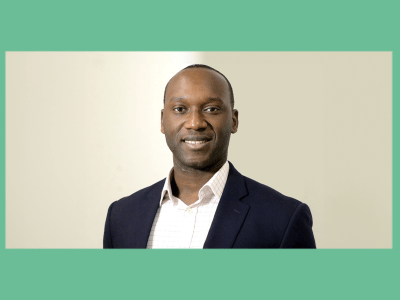“Embrace change. Change is the only constant” – SP Shukla, Group President at the Mahindra Group
The Mahindra Group is one of India’s largest multinational conglomerates, valued at more than $US20 billion and with operations in more than 100 countries.
It was a great privilege to welcome SP Shukla, Group President at the Mahindra Group, to our exclusive series of Learning From Leaders conferences. Mr. Shukla is now chairman of the boards of several companies in the field of aerospace, components, defense, steel, agri and micro irrigation. In conversation with Peter Vanham, author of “Before I Was CEO”, Mr. Shukla discussed his extraordinary career and offered advice to students.
These are some of the fascinating insights on leadership and career success that he shared with EU students and guests.
The Importance of Education and Lifelong Learning
Mr. Shukla attended the Indian Institute of Technology and the Indian Institute of Management, two of India’s most prestigious educational institutions. He believes strongly that education is key to success. “Try to get the best education possible,” he urged the attendees. “There’s no bigger asset in life than education. Your money can be robbed, you can be cheated out of your capital, your wealth. But education is something that stays with you all throughout your life.”
However, he also noted that sometimes coincidence can play a part in major life decisions: for example, he had intended applying to his local university when he received an application form for the Indian Institute of Technology (IIT) from a friend. This friend had been sent two forms by his family and was unwilling to discard the second and waste the price of a stamp (approximately 10 cents). This chance event would change his life. But, as Shukla reminded the audience, “Without hard work, the coincidences will not take you anywhere.” He put considerable effort into his preparations for the country’s finest schools: “There is no secret,” he warned, “you have to put in a lot of hours of study.”
Seize All Opportunities That Come Your Way
SP Shukla urged the audience to embrace opportunities whenever they are presented. After he graduated in engineering and management, he was taken on as a management trainee by the British multinational Dunlop, among the largest tire companies in the world at that time. One rainy day, after his monthly factory visit, he was waiting at the factory gates hoping that someone would give him a lift to the railway station. It happened to be the managing director who picked him up and drove him all the way back to Kolkata and Mr. Shukla seized the opportunity to impress during their one-hour journey. He urged the managing director to introduce nylon tires for two- and three-wheeled vehicles, because “many managers in purchase departments use them and they are the decision-makers for more expensive tires – the truck tires, the earth-moving machinery tires”.
It was a pivotal moment in his career: thanks to his insight and successful pitch, he became known as the person who could present properly and get projects approved. “That got me off to a good start and I never looked back,” he commented. He further advised students to “prioritize your conversation if you are talking to someone who can be an influencer or decision-maker,” so that the key points are mentioned first. He confessed that, much later in his career, he discovered there was a name for it – the ‘elevator pitch’.
Be Bold, Take Risks and Advance Your Career
SP Shukla’s career has been defined by his willingness to take risks, a characteristic he shares with global industry leaders such as the American businessman and entrepreneur Seth Godin, who famously remarked, “Playing it safe and not taking a risk is probably the most dangerous thing you could do in today’s rapidly changing and highly competitive business environment.”
After a decade with Dunlop, SP Shukla was ready to try something completely different and accepted a role as head of sales and marketing at Swisscom Essar (now Vodafone). “A new industry was about to be born: mobile telephony,” he said. It was a huge risk, given the lack of infrastructure, expensive handsets and high cost of calls, but Mr. Shukla says, “the excitement of something new got to me.” His boldness and vision were rewarded: as part of the founding teams of telecommunication companies Swisscom Essar and, later, Reliance, he introduced nearly 200 million subscribers to mobile telephony, oversaw the launch of the first pre-paid phones in India, introduced CDMA/3G, established the country’s first SMS service and put data on mobiles, among numerous extraordinary achievements.
After many years working in the telecommunications and IT industry, he was invited to take up an exciting opportunity in Mahindra Group, a huge conglomerate which was involved in a wide variety of sectors, from automobiles to holiday resorts. Mahindra offered him an exciting and challenging role as President of Group Strategy, which allowed him to collaborate with different companies within the group. After three years at Mahindra, he undertook a major project: changing the wordmark, logo and branding for the whole group. Mahindra had had the same logo since the company was established in 1945, but it no longer reflected the group’s diverse portfolio of companies. “Inertia or resistance to change is natural,” says Mr. Shukla, who articulated the new branding strategy and spent a year building consensus and another year effecting the change.
Why Failure Is Good: Learn From Your Mistakes
“The secret of Silicon Valley is that there is no stigma of failure”, says Mr. Shukla, who believes that “organizations which are successful are those which take away the stigma”. He points out that entrepreneurs who have failed twice in Silicon Valley still find funding for a third project, because failure is viewed as providing important lessons. At the Mahindra Group, Mr. Shukla promoted this mindset by overseeing the group’s innovation awards for several years. There were four categories of award – Product, Services, Business Model and Failed Innovation. The last of these was Mr. Shukla’s personal favorite, because it celebrated what could be learned from the failure, whether of the idea itself, its implementation or its acceptance. He encouraged the audience to recognize that failure offers unique learning opportunities.
Follow Your Dreams and Find Your Passion
Many of the prestigious guest speakers that we have featured in our Learning From Leaders conferences have urged students to find their passion when it comes to choosing a career. Mr. Shukla shares this fundamental belief, advising students to do “what your heart tells you and what you enjoy doing.” This, he believes, is not simply because passion is essential to make the most of a working life that will last for 40 years, but also because the most sought-after areas of business change approximately every five to seven years. He recalled that, during his four-decade career, he has seen numerous “waves”: first chemical engineering, then mechanical engineering, then electronics and telecommunications, then mobiles, then biotechnology and now data analytics.
He advised students that, in view of the constantly changing industry cycles and emerging new technologies, “You cannot decide your career based on what will work for the next seven years because it will only work for the next seven years.” In order to have a successful and fulfilling career, he offers the following key advice: “Don’t just accept change. Don’t merely adopt change. Instead, embrace change. Change is the only constant”.
Learning to Become a Leader
At EU Business School, students gain a practical business education learning from professionals, consultants, entrepreneurs and business leaders who share insights and advice from their own experiences, as well as explaining the theory and teaching the skills needed to launch a successful career.
To kickstart your future, explore our broad range of internationally accredited, English-taught programs today.










